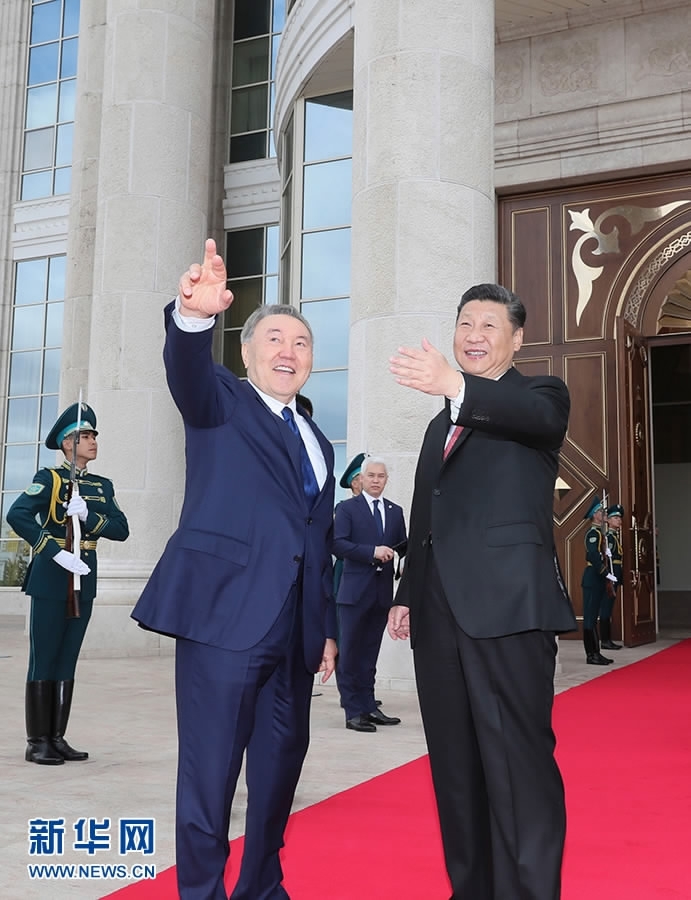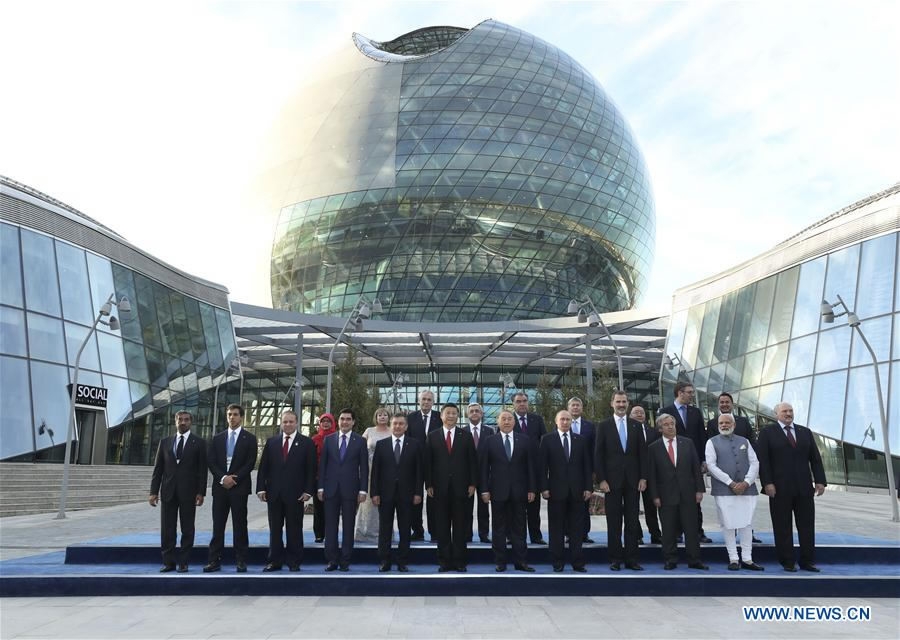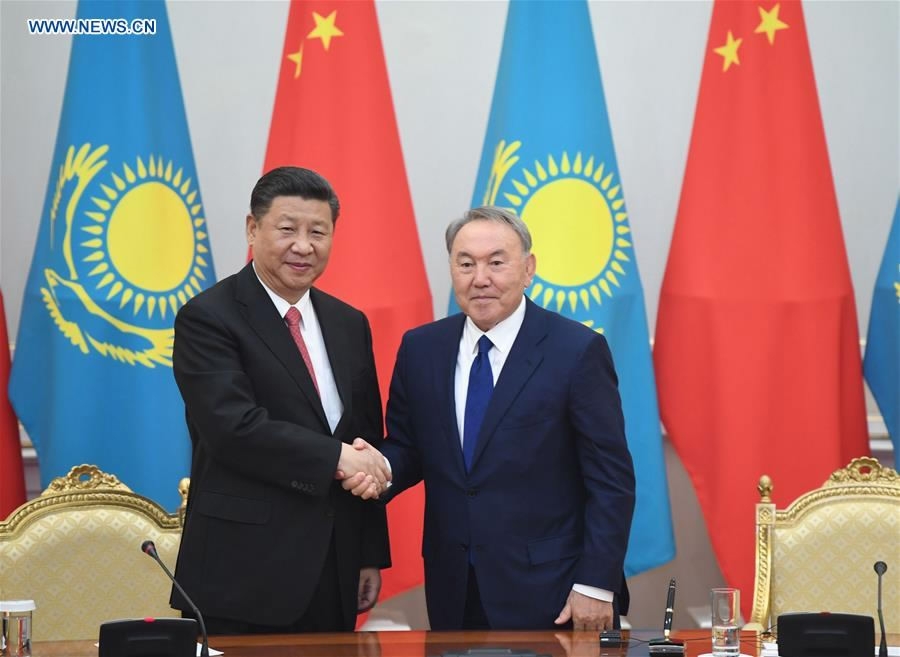Chinese Foreign Minister Wang Yi has highlighted progress made in tightening bilateral ties during President Xi Jinping's recent state visit to Kazakhstan.
Minister Wang said President Xi and his Kazakh counterpart Nursultan Nazarbayev agreed to further cooperation in several areas and the two sides issued a joint statement, vowing to promote exchanges in political, economic and cultural sectors.

Chinese President Xi Jinping (R) and Kazakh President Nursultan Nazarbayev talk after they review the honor guard during a welcome ceremony in Astana, Kazakhstan, June 8, 2017. /Xinhua Photo
Both sides agreed to work together as part of China's Belt and Road Initiative.
Wang said the two leaders mapped out future cooperation, especially in seeking synergy between the Belt and Road Initiative and Kazakhstan's new economic policy of "Nurly Zhol" or "Bright Path."
Lead further development of SCO
While in Kazakhstan, President Xi attended the 17th meeting of the Council of Heads of State of the Shanghai Cooperation Organization (SCO).
The SCO welcomed India and Pakistan as full members of the organization, the first such expansion since the group was formed in 2001.

Chinese President Xi Jinping, other leaders and guests gather before the opening ceremony of the Expo 2017 in Astana, Kazakhstan, June 9, 2017. /Xinhua Photo
Wang said President Xi proposed the SCO draw up a five-year outline for the implementation of the Treaty of Long-term Good Neighborliness, Friendship and Cooperation and formulate a three-year program of cooperation to fight the "three evil forces" -- terrorism, extremism and separatism.
China took over the rotating chair of the SCO after the Astana summit and will host its next summit in June 2018.
Inject new impetus into Belt and Road Initiative
China and Kazakhstan agreed to focus on aligning the construction of the New Eurasian Land Bridge and the China-Central and Western Asia Economic Corridor with the Kazakh strategy of building an international logistics corridor.
Both countries will join efforts to connect international production capacity cooperation with Kazakhstan's push for industrialization, sharing China's transportation advantages on land and by sea with the world's biggest landlocked country, and linking China's "digital Silk Road" initiative with the "digital Kazakhstan" strategy.

Chinese President Xi Jinping (L) shakes hands with his Kazakh counterpart Nursultan Nazarbayev as they sign a China-Kazakhstan joint statement and witness the inking of a series of bilateral cooperation documents after their talks in Astana, Kazakhstan, June 8, 2017. /Xinhua Photo
According to a joint statement signed by both leaders, China and Kazakhstan agreed to develop more international cargo train services, starting from China and running through Kazakhstan into Central Asia, the Gulf countries and Europe, and to effectively lower logistic costs, making railway freight a major solution for cargo transportation between Asia and Europe by 2025.
Related story:









